
An insecure millennial woman pursues her dream whilst learning how to adult. While being preoccupied with life tasks at hand she can barely handle and also severe depression, main character of this film Marta (30) keeps dreaming about making films, drawn to the healing power of storytelling, but not having the courage to act these dreams out; sometimes she is too scared to even pick up the phone. Marta’s life seems to sway both in comic and tragic directions: it’s sometimes a mix of ultimate freedom, sex, drugs, friendship, laughter, alcohol, lots of alcohol, music, honesty and love, and sometimes the reality Marta avoids to face becomes so brutal she can’t take it anymore. Through the course of the film Marta learns there is an unavoidable question that at some point becomes inevitable for almost every filmmaker: if you really want to direct films, can you first direct yourself out of depression?

Neon raver
Laine is a college girl from a bland middle-class suburb in Latvia. As Laine’s father distances himself from his crumbling marriage and his family, Laine is unable to cope with the separation and discovers the edgy Riga party scene, where she falls in love with seasoned raver Gunda. Going from rave to rave, the girls journey into a drug-fuelled underworld of anarchy, freedom and exploration.

After hearing many success stories about direct sales companies, Roberts decides to try his luck in selling vacuum cleaners door to door. On the first work day he finds out about the possible bonus in case of at least 2 successfully closed sales deals. At a glance the task seems quite easy. Once Robert faces the reality in a block of flats and encounters its peculiar inhabitants, the task no longer seems to be so simple.

While the whole world is overwhelmed by revolutions of different shades, the leading tandem of the Small Theater - Ivars and Armands is working on a new historical play set in 18th century France called ‘Revolution’. A week before the premiere the favorite of audiences and critics Armands receives a tempting offer to pursue his career at the Grand Theater. Betrayed by his best friend, Ivars gradually loses touch with reality. Themes of the play ‘Revolution’ starts to intertwine with Ivars personal life until he becomes unable to distinguish truth from fiction and that brings the Small Theater closer to an inevitable catastrophe - the act of terrorism at the evening of the premiere.

Esterhāzi
A runaway bride, a young peasant, mysterious illusionists and a manic investigator become entwined in a murderous affair at a Baltic German baron's manor.

A bureaucrat who has just declared himself as a new political force has disappeared… in a canteen; police are investigating. Combining the absurd and black humour, a harsh and ironic reflection on civil servants, cops, and contemporary art.
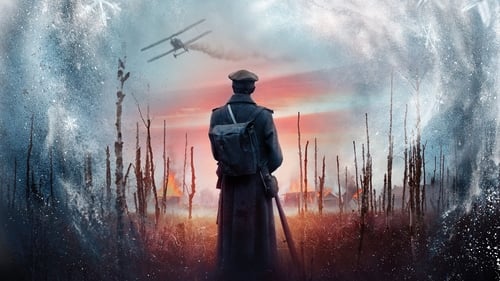
The love story of sixteen-year-old Arturs is interrupted by the First World War. After losing his mother and his home, he finds some consolation in joining the army, because this is the first time national battalions are allowed in the Russian Empire. But war is nothing like Arturs imagined – no glory, no fairness. It is brutal and painful. Arturs is now completely alone as war takes the lives of his father and brother. Also, no progress is made in the promised quick resolution of the war and timely return home. Within the notion that only he alone cares about returning home and that his homeland is just a playground for other nations, Arturs finds strength for the final battle and eventually returns home to start everything from scratch, just like his newly born country.

The film follows a ten-year-old boy whom everyone calls Bunny. He is emotional and reserved, and he spends most of his days playing with his only friend Edvards. Bunny’s life is shaken by his Mom’s new boyfriend Juris. The film depicts the pre-puberty boys’ awkward understanding of sexual intercourse and also tells the story of the relationship between a single mother and her son, seeking for a way to turn an uncomfortable experience into an opportunity to mature.
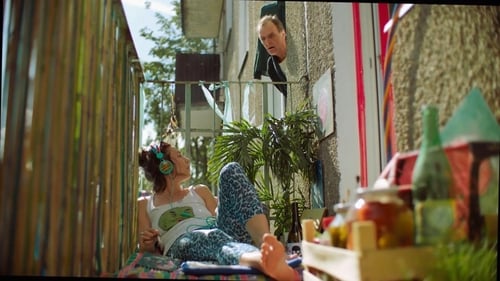
Jānis
By chance, Louise and Kaspars meet on a trip to celebrate Midsummer’s Eve. She’s running away from annoying neighbours and general sense of pointlessness; he’s running away from a failing marriage. They’re both young, talented, and lost; they both want to become artists; they’re both unsure how to go on about their lives. Maybe that’s why their shared trip turns into a strange, sometimes funny and sometimes complicated journey through a relationship over the course of three years.
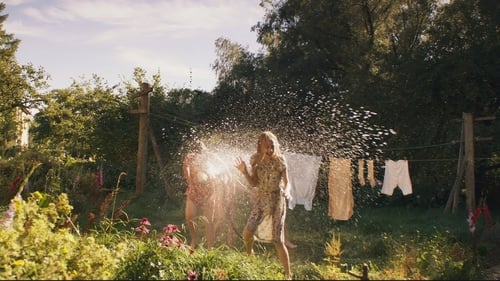
Summer, 1989. City girls, Paula and Laura, spend their summer holidays in a small town with their cousins, Maija and Linda. Four girls, left unattended, enjoy freedom, imitate the life of adults, plunge into reckless adventures and get into trouble. Based on true events, nine-year-old Paula’s story of growing up is set against the background of time when Lat-via made her first steps towards independence.

A tragicomic tale about the relationship of Guna and the twice older writer Gints. Guna has lost her job, but Gints hasn’t written anything in years. Whilst running away from an unsatisfactory relationship and the lack of creative self-expression, Guna gets obsessed with the theatre performance “Odyssey” by the famous director Viestur Kairish and begins to mix reality with theatre. Guna tries to start a new life, but her fantasy world doesn’t allow her to be a part of reality anymore.
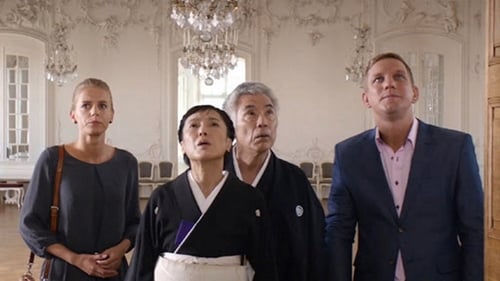
“Magic Kimono” tells the story of middle-aged Japanese woman Keiko, who has been living in a shell for decades due to a family tragedy in Kobe. The modest act of eating and the sensations it gives us provided Keiko a lifeline to survive. Unwillingly, she joins a group of Japanese women traveling to Northern Europe to participate in a kimono show in the fairytale-like art nouveau world of Riga. During her performance, Keiko suddenly comes face to face with her husband, who disappeared twenty years ago and now wants to read-dress their relationship and who Keiko has become.

Billy Joe lives in a small town and his biggest dream is to become a famous country musician. All he wants is to participate in the Bauska Country Festival, forgetting about the needs of his girlfriend and reality as such.
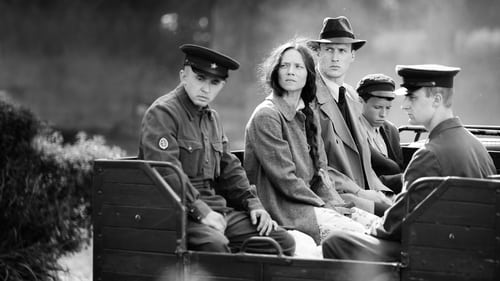
Aleksandrs
The 14th of June 1941, Soviet-occupied Latvia: Without warning, the authorities break into the house of Melanie and her husband Aleksandr and force them to leave everything behind. Together with more than 15 000 Latvians, Melanie and her son get deported to Siberia. In her fight against cold, famine and cruelty, she only gains new strength through the letters she writes to Aleksandr, full of hope for a free Latvia and a better tomorrow.

They met on Christmas Eve, beyond one's usual living-space: at the morgue. In an outburst of feelings, they try to manipulate each other in order to get what they want. She wants him, but he wants to vanish – following the rules of black comedy, neither one of them will get anything.

The time for the annual great graveyard celebration is approaching in a small town. Scientist Laila can’t attend it alone this year. She has to make a choice.














